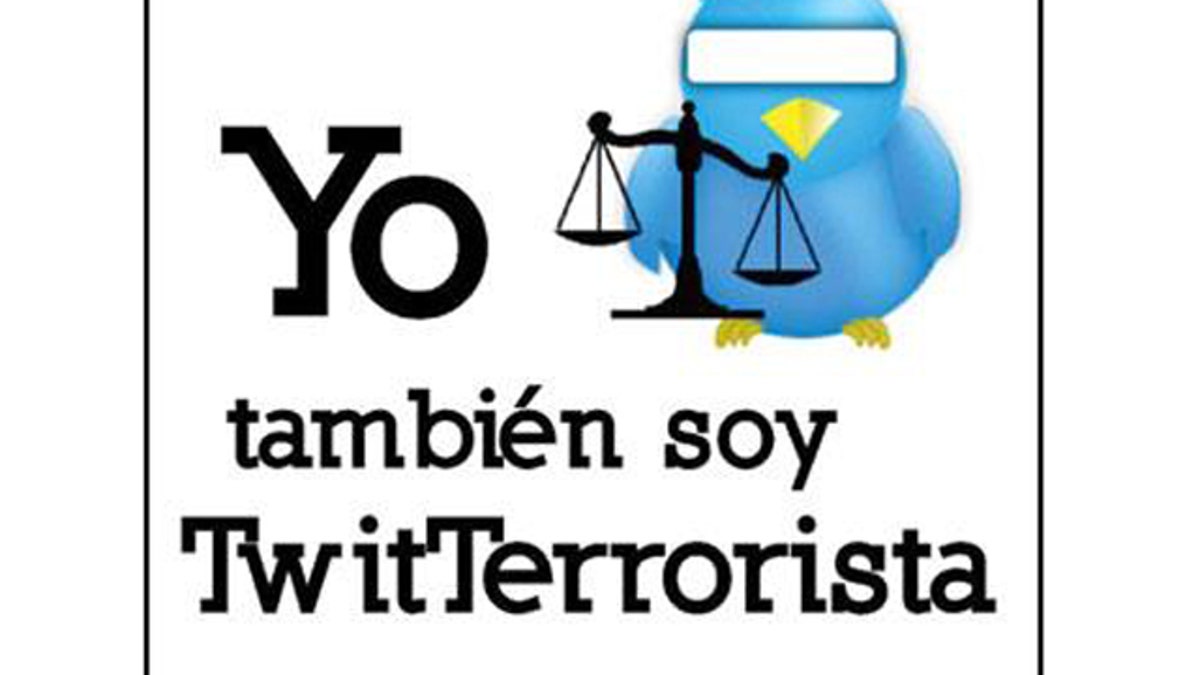
María de Jesús Bravo Pagola changed her Facebook photo to a blindfolded Twitter bird behind the scales of justice which reads, "I too am a TwitTerrorist."
The consequences for a few tweets just became less dire, but the defendants in the landmark case still believe their freedom of speech is at stake.
Lawmakers in Veracruz state approved a law Tuesday designed to lessen terrorism charges filed against a man and a woman for allegedly causing a panic by tweeting rumors of drug cartel shoot-outs.
The law would create a new charge of disturbing the peace, allowing prosecutors to revise the indictments against Gilberto Martínez and María de Jesús Bravo Pagola.
A judge charged them last month with terrorism and sabotage after tweeted reports of violence and kidnapping threats caused panic in Veracruz city.
Gov. Javier Duarte proposed the change earlier this month, citing pressure over the tweeting case from the Roman Catholic Church and civic groups.
If convicted under the current charges, the pair would face prison sentences of between three and 30 years for terrorism and sabotage. The new disturbing the peace charge carries a sentence of one to four years.
Duarte hasn't set a date for signing the legislation into law.
When enacted, people who falsely claim through any medium the existence of explosive material, shootings or other kinds of attacks that spread fear could face charges.
Defense attorney Claribel Guevara, who represents the pair, said Tuesday that they don't want to accept the lesser charge. They contend the government is violating their freedom of speech.
Martínez, who is a low paid tutor said through his lawyer that he never claimed to have first hand knowledge of what was going on but that he was merely tweeting what others told him.
"My sister-in-law just called me all upset, they just kidnapped five children from the school," Martínez tweeted.
In a subsequent tweet about the kidnap rumor, he said, "I don't know what time it happened, but it's true." He also tweeted that three days earlier, "they mowed down six kids between 13 and 15 in the Hidalgo neighborhood." While a similar attack occurred, it didn't involve children, according to the Huffington Post.
Bravo, who has worked as a teacher, a state arts official and a radio commentator said that she was just relaying messages to her own Twitter followers.
"How can they possibly do this to me, for re-tweeting a message? I mean, it's 140 characters. It's not logical,'" Bravo said through her lawyer.
The creation of the new charge sparked a flurry of tweets about the case Tuesday.
Hermann Ortega, a member of Mexican President Felipe Calderon's National Action Party, criticized the law on his Twitter account, saying local governments are "restricting freedom of expression."
On her Facebook profile, Bravo has a sole quotation in Spanish which could be seen as a response to the charges brought against her.
"Evil-doing comes from the intention of the act, not from the act itself," it reads.
The Associated Press contributed to this report.
Follow us on twitter.com/foxnewslatino
Like us at facebook.com/foxnewslatino
